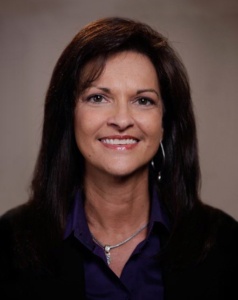Studies have shown time and time again that money stress is bad for marriages and can sometimes even lead to divorce.
Last month, in honor of Valentine’s Day, Reuters Money got a bunch of financial experts together for a Love and Money Twitter chat aimed at helping couples work through their dollar-based differences and keep their relationships on track. Take a look at the full #ReutersLove chat transcript here. I participated (@Glink), and so did other great folks like Lauren Young, Chris Taylor, Liz Weston and Suzanne Wheeler.
We covered a lot of helpful topics for couples, like how to handle pre-marriage money talk, decide whether you need a pre-nup and avoid keeping money secrets from a spouse — but even after an hour, there was a lot more to say.
That’s why I got together with Suzanne Wheeler, a partner and senior wealth advisor for Mariner Wealth Advisors, and asked a few more questions about two tough aspects of money and marriage that often get shoved under the rug: coping with stress and death.
Check out our Q&A below, and then leave a comment sharing your love and money story. What do you wish someone had told you sooner about sharing a financial life with someone else?
Q: Money issues are the No. 1 reason couples divorce. What are some of the things you notice in your clients’ finances six months to two years before they tell you they’re divorcing?
A: I’ve noticed that, in the months preceding a client’s decision to divorce, one of the partners may increase spending. At times, there is less of a focus on the long-term goals established and a sense of going off-track. Beyond financial changes, I notice behavioral changes, especially in the way the couple interacts with each other. Often, a spouse is not as considerate and will even interrupt or ignore their spouse’s perspective. Sitting back and listening can reveal much about a marriage and life beyond the finances.
Q: Divorce itself is extremely stressful emotionally, and it can be a landmine when it comes to a family’s finances. In your years of counseling families through the financial end of divorce, what stressors emerge? Have these changed over time, and how do you counsel your clients through them?
A: When working with a couple with children, regardless of whether or not the children are minors, I ask the clients, “If we get this right, what will it look like for the children?” Often times the room becomes very quiet. Being realistic and setting emotions aside can be helpful with a deep discussion. Marriages fail and divorce happens, but most parents want their children to be happy. By making the children the focus and finances secondary, it can really turn the conversations in a positive way.
Q: Do any of your clients realize how expensive it is to divorce – and how expensive it is to live post-divorce?
A: It is extremely expensive to go through divorce proceedings and then, consequently, manage expenses with one income. Our team begins these discussions right away. By preparing financial scenarios in the beginning, couples are faced with what their post-divorce financial picture looks like. I have seen couples work harder to reconcile, or realize things weren’t so bad, when they realize how their financial situation will change post-divorce.
Q: What’s the typical advice you give your clients about how to manage money during and post-divorce?
A: When clients are in the midst of divorce, I like to work on a new spending plan. To do this, we evaluate the client’s new goals and dreams. Often those who have been married for many years have become one unit and each person has lost their own identity. Reinventing themselves can be an uplifting project we work on! Life is hard. I try very hard to show my clients the positives when life looks uncertain.
Q: Death can also cause financial stress. How do you prepare your clients so that if the worst thing happens (death or a long-term debilitating illness), they’re able to focus on it emotionally because they’re taken care of financially?
A: Because of the in-depth planning we do at Mariner Wealth Advisors, we are always planning with a focus on the future and what could happen. No one likes to talk about death or long-term illnesses, but at the same time, most don’t want to burden their children or extended family members with decisions that will need to be made upon their death or illness. It is certainly easier to discuss these topics when you are healthy. Ideally, at the time of death or illness the financial affairs will be in order, allowing us to focus on the emotional needs. It is our job to be a listening ear, an independent person for independent advice and a deflector for well-meaning family members in times of stress.
Q: What are some of the biggest mistakes you’ve seen people make with their finances in the wake of a divorce or with the death of a long-term partner or spouse?
A: The biggest mistake I’ve seen people make in the midst of a life transition is moving too fast. At times, people feel like they have so much on their to-do list and they must complete it quickly. More than likely, this is self-inflicted stress on top of the stress they are already feeling from the divorce or death. I like to prioritize the items that are weighing heavy on my client’s mind. What has to be done immediately? What can wait and what is really a longer-term decision? Also, it’s good to look at who can help the client with these items. Delegating the list among the client’s trusted advisory board (CPA, lawyer, etc.) can alleviate much of the stress. When putting this roadmap together, you can see the stress melt from the client’s face.
Q: What’s the one thing you wish every couple knew about financial stress and divorce?
A: I wish everyone would take the opportunity to breathe, reflect and take the time to make rational decisions. Work together. Take the time to make discussions tolerable and worthwhile. With professional planning, and an open and realistic mind that there will be re-tooling to do, life is certain to look brighter in the long-run.

Suzanne Wheeler is a partner and senior wealth advisor for Mariner Wealth Advisors, specializing in divorce, death, retirement, inheritance, legacy planning and the day-to-day challenges life can bring. She is an Accredited Investment Fiduciary® designee, a Certified Financial Planner (CFP™) , a Certified Financial Transitionist™ (CeFT™), and has passed the Series 63 and 65 exams.







Leave A Comment